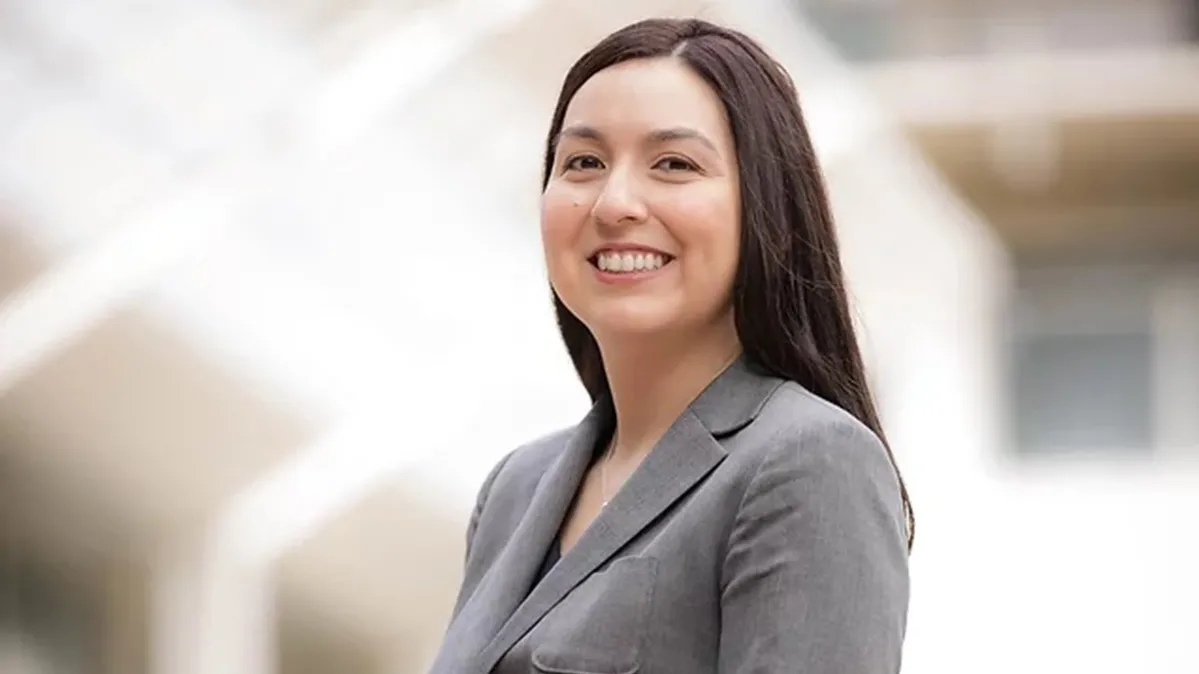Joe Gutierrez | CSUSB Office of Strategic Communication | (951) 236-4522 | joeg@csusb.edu

Genevieve Carpio, assistant professor of Chicana/o and Central American Studies at UCLA, will present “Collisions at the Crossroads: Place, Mobility, and Policing Southern California,” on Wednesday, Oct. 21, at 4 p.m. as part of the next Conversations on Race and Policing series.
The event will take place virtually and can be accessed from a PC, Mac, Linux, iOS or Android at https://csusb.zoom.us/j/97960458784.
During her presentation, Carpio will examine how elites and everyday people in the Inland Empire have come together and conflicted over spatial mobility, including practices that allow some people to move freely while placing limits on the mobility of others: from bicycle ordinances, to immigration policy, to traffic checkpoints.
Carpio’s research and teaching interests include race-making (the processes through which race and racial categories are reproduced and contested in daily life) between diverse groups, how people make meaning in the places they call home, and the public humanities, particularly as related to the California Inland Empire and the digital world.
Carpio is the author of a book on racial formation in the multiracial suburbs of Los Angeles and the Inland Empire entitled “Collisions at the Crossroads: How Place and Mobility Make Race” (University of California Press, 2019). Her second book project examines architectural forms shaped by California race relations, such as the Spanish and Maya revivals, and their movement across the Pacific World in the early 20th century.
She has also published in American Quarterly, Journal of American History, Journal of Urban Affairs, Western Historical Quarterly, Casden Annual Review, Boom California, the Arcadia local history series, and Information, Communication and Society, among other venues. She currently serves on the editorial board of Geohumanities, a journal of the American Association of Geographers, and as a reviewer for several academic journals.
Carpio is an interdisciplinary trained scholar who holds a doctorate in American Studies and Ethnicity from the University of Southern California. She also holds a B.A. in anthropology from Pomona College, an M.A. in urban planning from the University of California, Los Angeles, and a graduate certificate in historic preservation from the USC School of Architecture. Before joining UCLA, Carpio was a Postdoctoral Fellow in the Department of History and the Program for Ethnicity, Race, and Migration at Yale University.
She is the recipient of two Ford Foundation Fellowships, the Hellman Fellowship, and the UCLA Faculty Career Development Award. She has also received a USC Provost Fellowship and recognition as PAGE Fellow by Imagining America, a consortium of universities dedicated to public engagement.
Conversations on Race and Policing began in the aftermath of the May 25 death of George Floyd while in the custody of four Minneapolis, Minn., police officers. A video of the incident posted on social media has led to widespread protests, the firing of four police officers, the arrest of one officer on a second-degree murder charge, the other three on charges of aiding and abetting second-degree murder – and a spotlight worldwide on race and policing.
Previous forums also are posted online (more recordings will soon be available for viewing) on the CSUSB History Club Lecture Series YouTube channel:
- “Race and Policing, A Panel Presentation and CSUSB Campus Conversation” on June 3;
- “Conversations on Race and Policing (2), CSUSB Panel Presentation and Discussion” on June 10;
- “Conversations on Race and Policing (3), CSUSB Panel Presentation and Discussion” on June 17;
- “Conversations on Race and Policing (4), CSUSB Panel Presentation and Discussion” on June 24;
- “Conversations on Race and Policing (5), CSUSB Panel Presentation and Discussion” on July 1;
- “Conversations on Race and Policing (6), CSUSB Panel Presentation and Discussion” on July 8;
- “Conversations on Race and Policing (7), CSUSB Panel Presentation and Discussion,” on July 15;
- “Conversations on Race and Policing (8), CSUSB Panel Presentation and Discussion,” on July 22;
- “Conversations on Race and Policing (9), CSUSB Panel Presentation and Discussion,” on July 29;
- “Conversations on Race and Policing (10), CSUSB Panel Presentation and Discussion,” on Aug. 5, which discusses in detail what “defunding” and “abolishing” police mean, beyond the political rhetoric, with Alex S. Vitale, author and professor of sociology at Brooklyn College, coordinator of the college’s Policing and Social Justice Project, and author of “The End of Policing; ”
- “Conversations on Race and Policing (11), CSUSB Panel Presentation and Discussion,” on Aug. 12;
- “Conversations on Race and Policing (12), CSUSB Panel Presentation and Discussion,” on Aug. 19, and
- “Conversations on Race and Policing (13), CSUSB Panel Presentation and Discussion,” on Aug. 26.
On June 16 the College of Arts and Letters presented “Structural Racism, Civil Disobedience, and the Road to Racial Justice in the Age of COVID-19,” which is also posted on YouTube.
The university’s June 9 memorial for Floyd also focused on the Black Lives Matter movement.
And, related to the university’s conversations series, Netflix is making the 2016 Ava DuVernay film, “13th,” available for free on its YouTube channel. Combining archival footage with testimony from activists and scholars, director Ava DuVernay’s examination of the U.S. prison system looks at how the country’s history of racial inequality drives the high rate of incarceration in America.
The ongoing Conversations on Race and Policing series is hosted by CSUSB students Marlo Brooks and Yvette Relles-Powell.
The series is organized by Brooks and Relles-Powell, CSUSB faculty members Mary Texeira (sociology) and Jeremy Murray (history), Robie Madrigal, public affairs/communication specialist for the CSUSB John M. Pfau Library, and community member Stan Futch, president of the Westside Action Group.
For more information, contact Robie Madrigal at rmadriga@csusb.edu or Jeremy Murray at jmurray@csusb.edu.